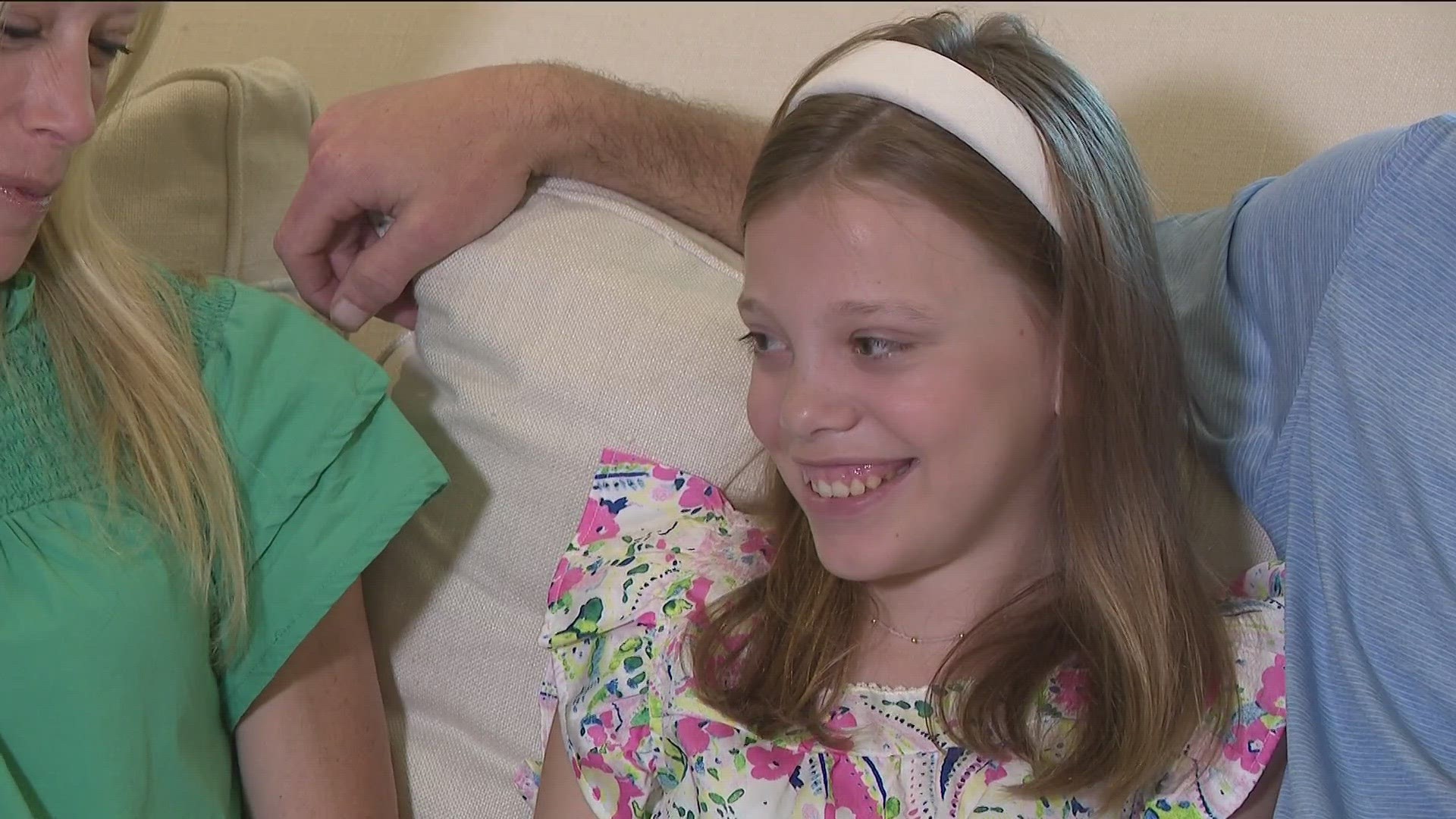ATLANTA — June 21 is International SYNGAP1 Awareness Day, bringing awareness to a rare genetic disorder you may have never even heard of, but Atlanta parents, Suzanne and Brent Jones are working to change that.
The Jones have three children and when their youngest, Jansen, was just 4 months old, they noticed she wasn’t using her arms and legs. So, they started getting tests done and asking questions .
“We were told lots of kids are delayed, it happens, just get her some therapy and everything will be fine,” Suzanne explained.
So the family started therapy for Jansen, kickstarting a journey to diagnose her that would last a decade.
Suzanne noted that her daughter "had low muscle tone, speech and language disorder...epilepsy when she was four or five."
Brent added "when you’re dealing with a nine or 10 year old who is still biting, spitting, this doesn’t seem right."
For 10 years the family looked for answers, until they were pointed to a new genome analysis by their geneticist. That test finally gave them the right diagnosis; Jansen had a gene mutation, SYNGAP1.
“I googled it and was like 'oh my gosh this is it!' It literally listed out all the issues we’d been dealing with. I started crying," Brent said. “Since she is lacking SYNGAP protein in her brain the neurons fire widely and go haywire, and that causes the memory and learning issues as well as a long list of disabilities”
Emory geneticist Dr. Rosanna Sanchez said genetic testing is crucial for a proper diagnosis on this mutation, which was only discovered in 2009. She added "I am learning alongside the families, because it’s so new.”
The symptoms of SYNGAP1 are extensive but they include:
- Developmental delay
- Coordination or mobility issues
- Epilepsy
- Vision problems
- Autism
- High pain tolerance
- Self injurious behavior
- Speech and language disorder
- Behavior issues
Right now, the number of patients in America with SYNGAP1 is only 350 but Dr. Sanchez said awareness will change that.
“I do believe the numbers of those being diagnosed are gonna grow,” she added.
And while there’s no cure yet, the Suzanne said gene therapy and medicine could "improve their brain function and do something about the fact that they’re missing the SYNGAP protein.”
Jansen swims, plays buddy baseball, and rides horses as part of her therapy, while Suzanne chairs the board of the SYNGAP1 Research Fund to raise awareness and find a cure to help her daughter and all the other children living with SYNGAP1.
“It’s a time to celebrate, it’s a time to realize there is hope and we do have a community and dig in and keep working,” said Suzanne.
To learn more about the symptoms and treatments for SYNGAP1 click here.
Coming up in August in Atlanta is the SYNGAP Soiree’, for more info click here.

